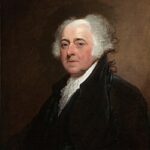The Adams Sedition Act Decision
President John Adams signed the Sedition Act on July 14, 1798. This law made it illegal to publish false or malicious statements against the government. ⚠️ The Adams Sedition Act targeted political opponents with unprecedented severity. Federal prosecutors arrested newspaper editors who criticized the president. They also imprisoned a Democratic-Republican congressman from Vermont. These prosecutions marked the first major test of press freedom in America.
Targeting Political Critics
The Federalist administration prosecuted at least 25 people under the new law. Most defendants were Democratic-Republican newspaper editors and politicians. 📊 Prosecutors filed cases in strongly Federalist districts to ensure convictions. Judges imposed heavy fines and prison sentences on critics. The administration used the law as a weapon against political opposition. Many Americans viewed these prosecutions as partisan persecution rather than legitimate law enforcement.
Constitutional Controversy
The Adams Sedition Act raised serious constitutional questions about free speech. Critics argued the law violated the First Amendment’s protection of press freedom. 🔥 Democratic-Republicans organized resistance through the Kentucky and Virginia Resolutions. These documents declared the law unconstitutional and threatened state nullification. The controversy deepened partisan divisions and undermined Adams’ presidency heading into the 1800 election.
Impact:
Political Backlash and Electoral Consequences
The Adams Sedition Act prosecutions backfired spectacularly on the Federalist Party. Democratic-Republicans gained sympathy as victims of government persecution. 📉 Public opinion turned against Adams’ heavy-handed tactics. The prosecutions became a central issue in the 1800 presidential campaign. Thomas Jefferson promised to pardon all sedition prisoners if elected. Adams lost reelection partly due to voter anger over these controversial prosecutions.
Press Freedom and Civil Liberties
🔥 The sedition prosecutions created lasting precedents for press freedom debates. Newspaper editors became martyrs for the cause of free speech. The controversy established important principles about government criticism rights. Courts later recognized broader protections for political dissent. The failed prosecutions demonstrated the dangers of using criminal law against political opponents. These cases influenced future Supreme Court decisions on First Amendment rights.
Long-term Constitutional Impact
The sedition crisis shaped American understanding of constitutional limits on government power. 🌍 The Kentucky and Virginia Resolutions introduced theories of state resistance to federal overreach. These ideas later influenced nullification crises and constitutional interpretation. The Sedition Act expired in 1801 and was never renewed. Jefferson pardoned all sedition prisoners and refunded their fines. The episode became a cautionary tale about wartime restrictions on civil liberties that continues influencing modern debates.
